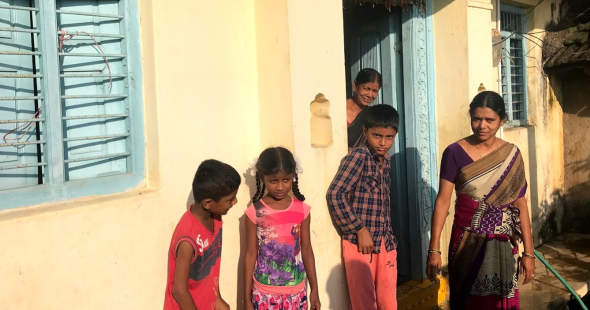Malaria/CRP rapid diagnostic test

What is this project?
This project is evaluating the clinical performance and impact of a new rapid diagnostic test that combines the detection of malaria (both Plasmodium falciparum and other Plasmodium species, including Plasmodium vivax) with a test providing an indication of whether the patient’s infection has a bacterial origin or not.
Why are we working on it?
Malaria can usually be detected efficiently by rapid diagnostic tests. However, when a malaria test is negative, healthcare professionals in resource-constrained settings do not have tools available to further diagnose the cause of fever, and will often prescribe an antibiotic “just in case” – even if they have no evidence that the cause of the fever is bacterial (and therefore that an antibiotic will be needed). This inevitably leads to high levels of over-prescription of antibiotics – an important driver of antimicrobial resistance, now a major public health threat.
C-reactive protein (CRP) is a biomarker associated with bacterial infection. Tests that measure levels of CRP in the blood are routinely used to guide treatment decisions in high-income countries. Recent data suggest that CRP may also be suitable for use in Southeast Asia, a low malaria transmission setting.
A malaria and CRP combination test that could be used at the point of care would give clinicians in malaria elimination settings the ability to use a similar evidence-based approach to care, by enabling them to effectively differentiate bacterial from non-bacterial infections.
What does it involve?
This project focuses on patients presenting with fever in malaria-endemic areas and involves both a clinical performance and an impact study, with reference tests in a point-of-care setting as a benchmark.
Alongside a clinical study that has been conducted across 7 sites in India, an impact study in Cambodia is evaluating how this test could influence treatment decisions and encourage the use of malaria tests in low malaria-endemic settings, which is critical to advance malaria elimination. Another impact study is also planned in Myanmar.
What do we expect to achieve?
The project directly contributes to the goal of eliminating malaria by 2030 by providing a new rapid test that facilitates integrated fever management through tangible results for malaria-negative patients, while simultaneously helping to address the rise of antimicrobial resistance in low- and middle-income countries.
What is the timescale?
The studies will run until early 2021 (for the clinical performance evaluation in India) and late 2021 (for the impact studies).
Partners and funding
The clinical study is hosted by the Indian National Institute of Malaria Research (Indian Council of Medical Research; ICMR), New Delhi, India. The impact studies are carried out in conjunction with the Cambodian National Center for Parasitology, Entomology and Malaria Control (CNM), Phnom Penh, Cambodia, and the Department of Medical Reseach (DMR), Yangoon, Myanmar.
The rapid diagnostic test was developed by FIND and SD Biosensor with funding from UK aid from the British people. Funding for the clinical evaluation and impact studies is provided through the Australian Department of Foreign Affairs and Trade (DFAT), UK aid from the British people, and Botnar Foundation.
More information
For more information, please contact info@finddx.org.
Related documents
- Press release
- ASTMH2019 abstract
- Economic considerations support C-reactive protein testing alongside malaria rapid diagnostic tests to guide antimicrobial therapy for patients with febrile illness in settings with low malaria endemicity
- The good and the bad: using C reactive protein to distinguish bacterial from non-bacterial infection among febrile patients in low-resource settings

